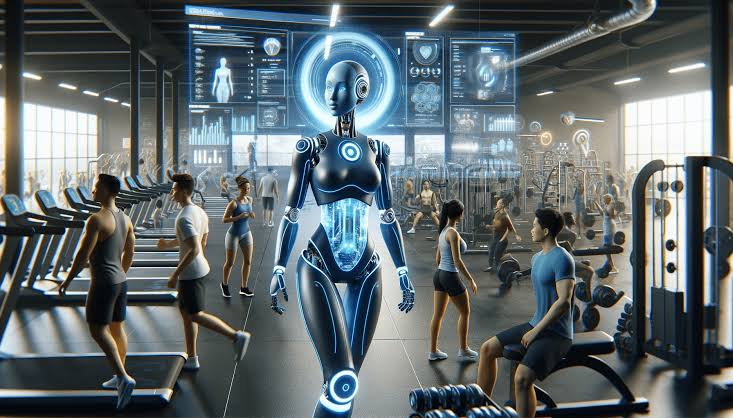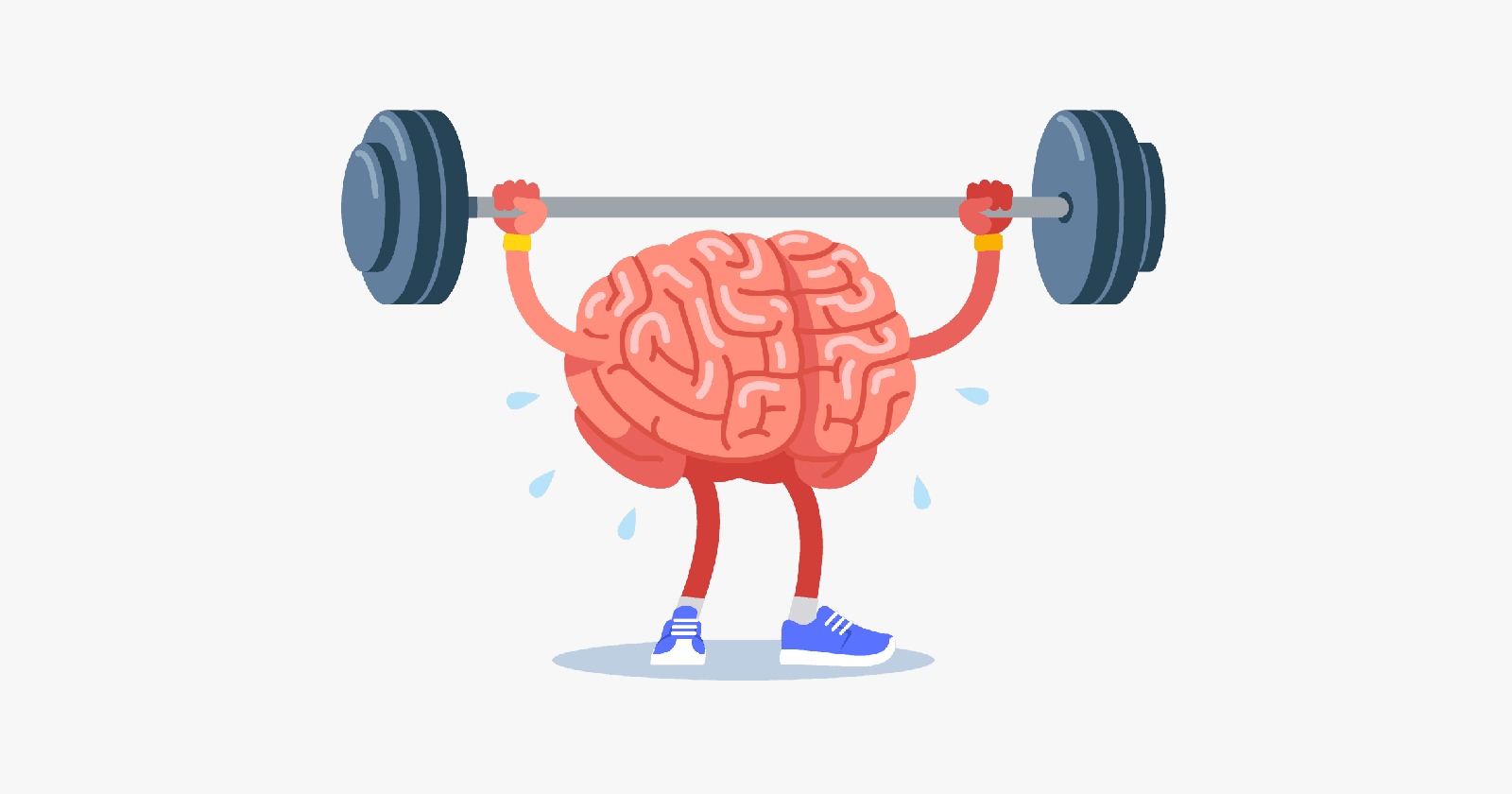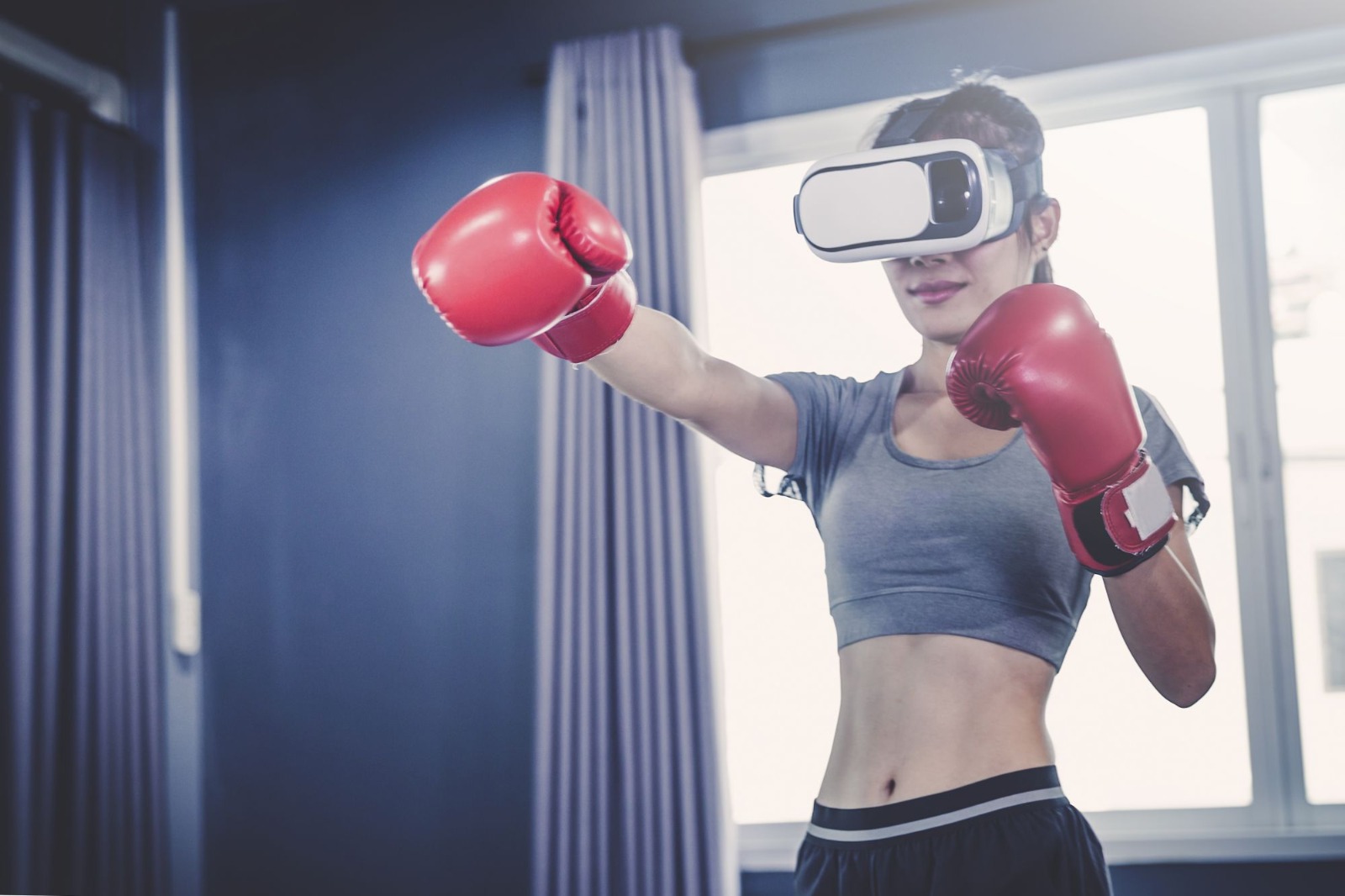
AI-Powered Personal Training: Smarter Ways to Get Fit
AI-powered personal training is revolutionizing fitness by offering personalized, data-driven guidance once only available through expert coaches. Using wearables, sensors, and smart apps, AI tracks workouts, suggests diets, and provides real-time corrections. It makes fitness more affordable, engaging, and accessible for beginners and professionals alike.
💪 Fitness Guru
40 min read · 7, Sep 2025

Introduction
The world of fitness is rapidly evolving. Gone are the days when personal training meant scheduling expensive one-on-one sessions at the gym. Today, artificial intelligence (AI) has stepped into the fitness world, offering smarter, personalized, and more accessible training methods. From fitness apps that adapt to your progress, to smart wearables that analyze your heart rate and calories burned—AI is reshaping how we move, eat, and live.
AI-powered personal training combines technology with human-like coaching. It tracks your data, creates customized workout plans, adjusts routines in real-time, and even motivates you to stay on track. This makes fitness not only smarter but also more achievable for everyone, regardless of experience, budget, or location.
In this article, we’ll explore how AI personal training works, its benefits, the science behind it, practical daily routines, common myths, and how you can start using AI for your fitness journey today.In the modern world, fitness has become more than just a lifestyle trend—it has evolved into a personal necessity. With busy schedules, fluctuating motivation, and the never-ending stream of health advice available online, finding the right fitness routine can feel overwhelming. This is where artificial intelligence has stepped in to revolutionize the way we approach health and fitness. AI-powered personal training is emerging as one of the smartest, most efficient ways to get fit, providing tailored solutions that fit into the unique needs of every individual.
Traditionally, personal training was limited to hiring a fitness coach at a gym or following generalized workout videos at home. While effective to an extent, these methods often lack personalization. Not every body type is the same, and not every lifestyle allows for the same fitness routine. AI technology has transformed this limitation by analyzing data and providing training plans that are uniquely suited to the user. From beginners to seasoned athletes, AI-driven platforms can adapt in real-time, making fitness smarter and more accessible than ever before.
One of the major strengths of AI-powered personal training lies in its ability to collect and interpret data. With wearables, smartphones, and fitness apps, people now have access to constant streams of information about their heart rate, sleep cycles, calorie intake, step counts, and much more. AI takes this data and creates personalized recommendations, giving users clear guidance instead of leaving them confused with scattered numbers. For example, if someone has a low sleep score or elevated stress levels, the AI can adjust their workout intensity accordingly, suggesting lighter exercises like yoga or stretching instead of a high-intensity workout. This ensures that training aligns with the body’s actual needs at any given moment.
Another important aspect of AI-driven personal training is motivation. Many people start strong in their fitness journey but struggle to stay consistent. AI tools help address this challenge by providing instant feedback and encouragement. Virtual trainers can correct form during workouts, celebrate milestones, and even send reminders when motivation begins to slip. This digital accountability partner works much like a human trainer, but without time restrictions or high costs. The constant presence of AI guidance helps individuals stay disciplined and inspired, turning fitness into a long-term habit rather than a short-lived effort.
In addition to personalized training and motivation, AI also makes fitness more accessible. For people who cannot afford expensive gym memberships or private trainers, AI-based apps and devices offer affordable alternatives. A smartphone camera or a smartwatch is often enough to connect with AI fitness platforms that analyze movements and recommend improvements. These tools bring professional-level training within reach of anyone, regardless of their budget or location. Whether someone is working out in a small apartment, at a local park, or in a fully equipped gym, AI personal training adapts to the environment and maximizes results.
What truly makes AI-powered fitness smarter is its ability to evolve with the user. Unlike static workout plans, AI systems learn from progress and setbacks. If a person’s strength increases, the AI automatically increases resistance levels or recommends new exercises to prevent plateaus. If injuries occur, the AI adjusts the plan to focus on recovery and safe movements. This dynamic adaptability mirrors the intuition of a highly skilled human trainer, but with even more precision due to continuous monitoring of performance data. Over time, the AI grows with the user, making the training journey highly personalized and ever-evolving.
Nutrition is another area where AI has transformed personal training. A good workout alone is not enough to achieve long-term fitness goals—diet plays an equally important role. AI-powered fitness apps often integrate meal planning features, tracking what users eat and suggesting improvements. By analyzing calorie intake, macronutrient balance, and even hydration levels, AI ensures that users fuel their bodies correctly for performance and recovery. Some advanced systems even scan packaged foods or restaurant menus to provide instant nutritional breakdowns, helping users make smarter choices on the go. This holistic approach to fitness combines exercise and diet, ensuring a complete transformation rather than just a temporary fix.
The social element of AI-powered personal training is also noteworthy. Many apps allow users to connect with fitness communities where progress can be shared, challenges can be joined, and encouragement can be exchanged. AI tracks performance and creates leaderboards or group challenges, giving people the sense of belonging and friendly competition that often drives motivation. Unlike traditional gyms where community interactions may be limited, AI platforms create global networks where people from different parts of the world can come together to pursue similar fitness goals.
Critics sometimes argue that AI cannot replace the human touch and empathy of a real trainer. While this is partly true, AI does not aim to replace human trainers entirely—it aims to complement and enhance the training process. Many professional trainers now use AI tools to better track client progress and provide more accurate recommendations. AI eliminates guesswork, allowing trainers to focus on building relationships, motivating clients, and designing advanced strategies. In this way, AI and human expertise work together to create the best possible fitness outcomes.
Looking ahead, the potential of AI in fitness is limitless. With advancements in machine learning, computer vision, and health monitoring devices, AI-powered personal training will only become more precise and efficient. Soon, we may see virtual reality workouts fully customized by AI, real-time posture correction through smart mirrors, and AI-generated meal plans that adjust daily based on biomarkers like blood sugar or hormone levels. The future promises a level of personalization that was once unimaginable, putting every individual at the center of their fitness journey.
AI-powered personal training is more than just a technological innovation—it is a revolution in the way we care for our bodies. By combining science, data, and personalized guidance, it makes fitness smarter, more effective, and more sustainable. Whether someone’s goal is weight loss, muscle gain, improved endurance, or simply better health, AI creates a path that is tailored, adaptable, and empowering. In a world where time is limited and health is priceless, AI is proving to be the personal trainer that never sleeps, never loses track, and always works in the best interest of its user. Fitness is no longer about following a generic plan; it’s about experiencing a personalized, intelligent, and sustainable journey toward a healthier self.
Would you like me to also add a 70-word summary at the end like the Q&A
What is AI-Powered Personal Training?
AI-powered personal training uses machine learning, data analysis, and smart algorithms to design and adjust fitness programs based on your unique body, goals, and progress. Unlike traditional training plans that are one-size-fits-all, AI constantly learns from your performance.
It involves:
- Fitness apps with virtual trainers that give feedback
- Wearables like smartwatches tracking steps, heart rate, and recovery
- Adaptive workout programs that change as you progress
- Nutrition suggestions tailored to your health data
- Voice-guided AI coaches that keep you motivated
Why Traditional Training Falls Short
- Costly Personal Trainers – Not everyone can afford sessions at the gym.
- One-Size-Fits-All Plans – Standard workout PDFs don’t consider your pace or struggles.
- Low Consistency – Many quit fitness because of lack of motivation or unclear progress.
- No Real-Time Feedback – Without guidance, mistakes in posture or technique can cause injuries.
AI solves these challenges by offering affordable, personalized, and data-driven training.
How AI Personal Training Works
- Data Collection
- AI apps gather data from your input and wearables: age, weight, activity level, sleep, heart rate, and performance.
- Personalized Plans
- Based on this data, AI designs workouts and nutrition plans that fit your goals—whether weight loss, muscle gain, or endurance.
- Real-Time Feedback
- Some apps use motion tracking (via phone camera or smart mirrors) to correct posture instantly.
- Adaptive Progression
- As you get stronger or faster, AI adjusts sets, reps, and difficulty levels automatically.
- Motivation & Consistency
- AI sends reminders, gamifies workouts, and tracks streaks to keep you accountable.
Benefits of AI-Powered Training
- Personalization at Scale
- Every user gets a unique plan—like having your own trainer 24/7.
- Cost-Effective
- AI coaching is far cheaper than hiring a personal trainer.
- Flexibility Anywhere
- Work out at home, outdoors, or in the gym without scheduling conflicts.
- Real-Time Corrections
- Smart motion sensors and camera tracking prevent injuries and improve form.
- Data-Driven Progress
- AI tracks calories, sleep, recovery, and performance—giving you a clear picture of progress.
- Long-Term Motivation
- Gamified challenges, streaks, and rewards keep you consistent.
The Science Behind AI Fitness
AI works by analyzing big data and applying machine learning models to predict and improve your outcomes.
- Heart Rate Variability (HRV): AI monitors your stress and recovery levels to decide if today’s workout should be light or intense.
- Biomechanics Analysis: Computer vision evaluates your squats, push-ups, or yoga postures.
- Predictive Nutrition: Based on your energy expenditure, AI suggests meals to optimize recovery and muscle growth.
- Behavioral Patterns: AI identifies when you’re most likely to skip workouts and sends motivation at the right time.
Daily AI-Powered Fitness Routine
Morning
- Wear smartwatch to track sleep and recovery.
- Short AI-recommended stretching routine (5–10 minutes).
- AI app suggests a protein-rich breakfast.
Midday
- Quick adaptive workout (15–20 minutes) guided by AI coach.
- AI tracks calories burned and recommends hydration.
Evening
- Main workout session: strength, cardio, or yoga depending on app plan.
- AI feedback on posture and reps.
- Balanced dinner suggested by AI nutrition plan.
Night
- AI tracks your heart rate and sleep readiness.
- Guided meditation or breathing session for recovery.
Weekly AI Fitness Practices
- 3 adaptive strength training sessions (AI adjusts sets & reps).
- 2 cardio-focused workouts, intensity based on HRV data.
- 1 active recovery session (yoga, stretching, or light walk).
- AI check-in: Weekly progress report with graphs.
- Nutrition adjustments: AI recommends foods to balance macros.
Practical Examples of AI in Fitness
- Smartwatches (Fitbit, Apple Watch, Garmin): Track activity and recovery.
- AI Apps (Freeletics, Fitbod, Vi Trainer): Personalized adaptive workouts.
- Smart Mirrors (Mirror, Tonal): Real-time posture correction at home.
- AI Nutrition Coaches (Lumen, MyFitnessPal AI): Suggest meal plans for fitness goals.
Common Mistakes People Make with AI Training
- Ignoring Human Feedback
- AI is powerful but not perfect—sometimes you still need expert guidance.
- Relying Only on Gadgets
- AI works best when paired with discipline, rest, and self-awareness.
- Skipping Warmups
- Even if AI skips it, always warm up to avoid injury.
- Overtraining
- Some people push too hard when AI adjusts—listen to your body.
AI Fitness Myths: Busted!
“AI replaces human trainers completely.”
→ False! AI assists but can’t fully replace the personal touch and emotional support of a human trainer.
“AI workouts are only for tech-savvy people.”
→ Not true. Most apps are user-friendly and designed for beginners.
“AI makes all decisions—you lose control.”
→ Wrong. You can always adjust plans; AI only guides, not commands.
“AI workouts are boring or robotic.”
→ Absolutely false. Many apps gamify workouts, making them fun and engaging.
“You need expensive gadgets for AI training.”
→ Not necessarily. Even free apps on your phone offer AI-guided plans.
Sample AI-Enhanced Fitness Flow
Morning: AI recommends stretches after analyzing your sleep cycle.
Midday: Quick adaptive workout with AI progress tracker.
Evening: AI adjusts intensity based on heart rate and recovery status.
Night: App generates a sleep plan with guided relaxation.
Weekly, AI provides a progress report—covering calories burned, strength improvements, and nutrition balance—helping you stay consistent without overthinking.
Conclusion
AI-powered personal training is not just a tech trend—it’s the future of fitness. By blending data science, smart coaching, and personalization, AI helps people achieve their goals faster and safer. Whether you’re a beginner struggling with motivation or an athlete chasing performance, AI provides structure, guidance, and consistency.
The smartest way to get fit today isn’t about spending hours at the gym or hiring costly trainers. It’s about using AI to understand your body, track your progress, and adapt your journey in real-time.
Stay consistent. Trust the process. Let AI guide you smarter, not harder.
Because the future of fitness is already here—and it’s in your pocket.
Q&A Section
Q1:- What is AI-powered personal training and how does it differ from traditional training?
Ans :- AI-powered personal training uses smart algorithms and data analytics to create customized fitness plans, unlike traditional training which relies solely on human trainers.
Q2:- How do AI fitness apps track and analyze workouts?
Ans :- These apps use sensors, motion tracking, and wearable devices to monitor reps, heart rate, calories, and form, then provide real-time feedback.
Q3:- Why is personalization a major advantage of AI in fitness?
Ans :- AI adapts to each individual’s progress, body type, and goals, ensuring the workout remains effective, safe, and continuously evolving.
Q4:- Can AI help beginners start their fitness journey confidently?
Ans :- Yes, AI trainers guide beginners with step-by-step instructions, video demonstrations, and progress tracking, reducing the risk of injury and confusion.
Q5:- How does AI support nutrition and diet planning?
Ans :- Many AI platforms suggest personalized meal plans by analyzing calorie needs, dietary restrictions, and fitness goals to optimize overall health.
Q6:- What role does real-time feedback play in AI fitness training?
Ans :- Real-time corrections on posture, intensity, and reps help users avoid mistakes, maximize efficiency, and achieve better results faster.
Q7:- How affordable is AI-powered training compared to personal trainers?
Ans :- AI fitness apps are often more cost-effective than hiring human trainers, making professional-level guidance accessible to a wider audience.
Q8:- How does AI make fitness engaging and motivating?
Ans :- Gamification, progress charts, and virtual challenges keep users motivated, while AI coaches provide encouragement and goal reminders.
Q9:- Can AI-powered training be integrated with wearables like smartwatches?
Ans :- Yes, AI seamlessly syncs with devices such as Fitbit, Apple Watch, and others to give a complete fitness and health overview.
Q10:- What is the future of AI in personal fitness?
Ans :- AI will evolve with advanced biometrics, VR integration, and predictive analytics, offering a more immersive, precise, and holistic training experience.
Similar Articles
Find more relatable content in similar Articles

Fitness for the Brain – How Workouts Rewire Your Mind...
“Discover how physical exercis.. Read More

Fitness for Gamers: Keeping Body Active During Long Gaming H..
“Balancing Mental Focus with P.. Read More

Epigenetics and Exercise – How Your Workout Affects Your Chi..
“Exploring how regular physica.. Read More

Monks and Movement: Spiritual Fitness Practices from Temples..
“Exploring the ancient wisdom .. Read More
© 2024 Copyrights by rFitness. All Rights Reserved.